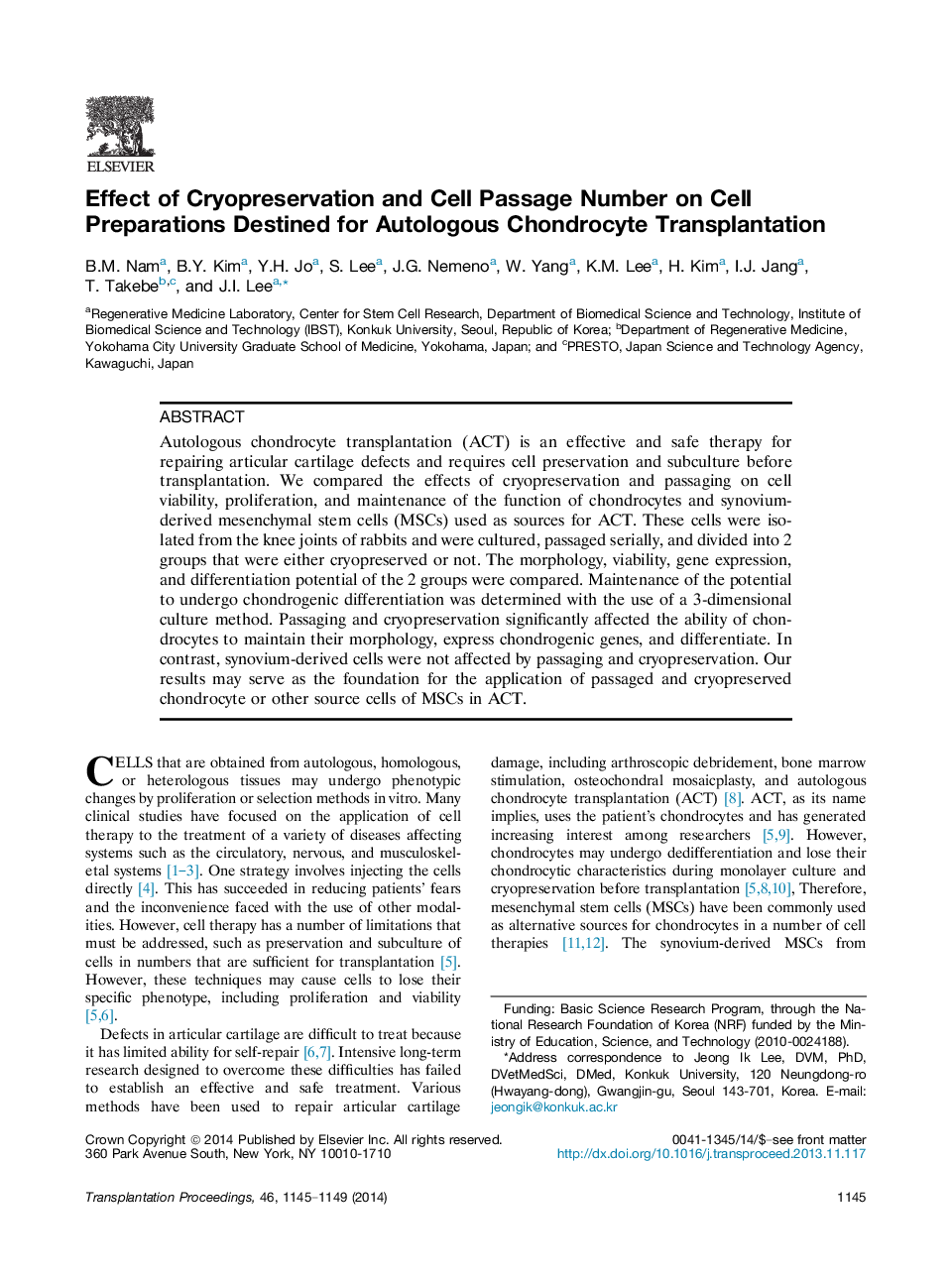| Article ID | Journal | Published Year | Pages | File Type |
|---|---|---|---|---|
| 4256700 | Transplantation Proceedings | 2014 | 5 Pages |
Autologous chondrocyte transplantation (ACT) is an effective and safe therapy for repairing articular cartilage defects and requires cell preservation and subculture before transplantation. We compared the effects of cryopreservation and passaging on cell viability, proliferation, and maintenance of the function of chondrocytes and synovium-derived mesenchymal stem cells (MSCs) used as sources for ACT. These cells were isolated from the knee joints of rabbits and were cultured, passaged serially, and divided into 2 groups that were either cryopreserved or not. The morphology, viability, gene expression, and differentiation potential of the 2 groups were compared. Maintenance of the potential to undergo chondrogenic differentiation was determined with the use of a 3-dimensional culture method. Passaging and cryopreservation significantly affected the ability of chondrocytes to maintain their morphology, express chondrogenic genes, and differentiate. In contrast, synovium-derived cells were not affected by passaging and cryopreservation. Our results may serve as the foundation for the application of passaged and cryopreserved chondrocyte or other source cells of MSCs in ACT.
